In this week's edition
- ✍️ Letter from P'Fella
The future won’t be peer-reviewed. - 🤓 The Sunday Quiz
Paused this week — we were polishing Foundations. - 🖼️ Image of the Week
Traditional OR: How far we have come. - 🎓 JPRAS Journal Club
When to start mobilisation after ORIF of hand fractures. - 🎈 Upcoming Events
You’re On Call Now: Live event. - 📘 Foundations Textbook
Officially in pre-sale, and open to the public soon! - 🔥 Articles of the Week
We need more exposure, AI obviously, & Grassroot programs: With 1-sentence summaries. - 💕 Feedback
Suggest ideas & give feedback!
A Letter from P'Fella
The Future Won’t Be Peer-Reviewed
Plastic surgery has always evolved on the margins — inside the OR, not inside the abstract. And now? We’re going live.
Next week, we’re running our first-ever live event. Not AI-written. Not AI-proofread. Definitely not AI-reviewed.
Just humans, live, and unfiltered. Exactly how surgical education should be.
Why Live Matters
We’re building something that can’t be faked or filtered:
- Real conversations from real surgeons actually doing the work.
- Direct takeaways, not summaries.
- No edits, no do-overs, and no time delay on what’s changing in the field.
If AI is flooding the journals, live events are how we take education back.
This is the format we believe in, and it's just the beginning.
So What’s Happening?
- 🔴 Event: You’re On Call Now.
- 📅 Date: Saturday, 26 July.
- 🎙️ Guests: You’ll see. But we’re not starting small.
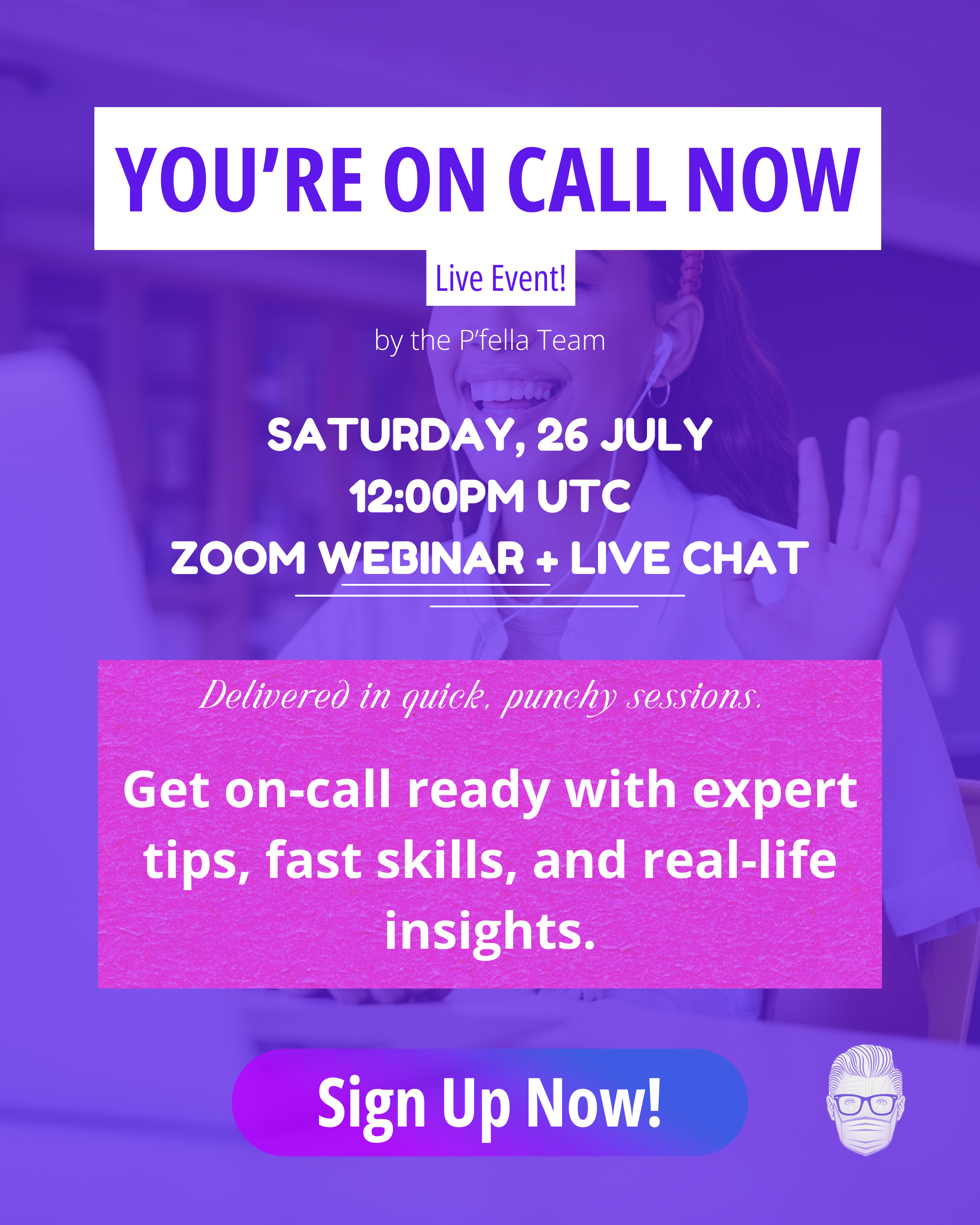
This isn’t just an experiment. It’s a shift. The kind you feel. The kind you remember.
Less AI noise. More human signal.
You in?
With love,
P Fella ❤️
The Sunday Quiz
Too busy prepping Foundations this week — back next Sunday!
Image of the Week
Traditional OR: How Far We Have Come
This week’s image reflects how far surgery has come — a striking view of the traditional operating theatre setup. The elevated amphitheatres, antiseptic protocols, and aseptic technique are a reminder of the roots of modern surgery and how the theatre, quite literally, used to be one.
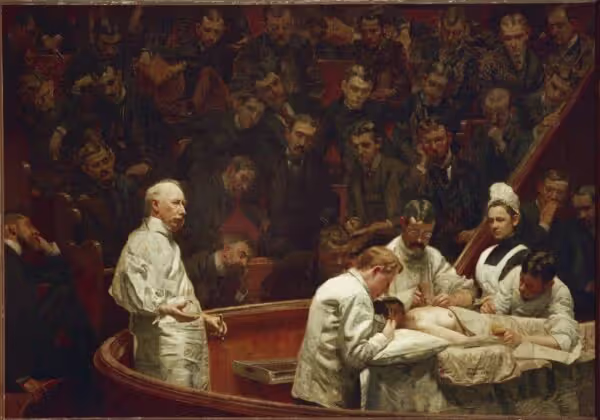
JPRAS Journal Club
When to Start Mobilisation After ORIF of Hand Fractures
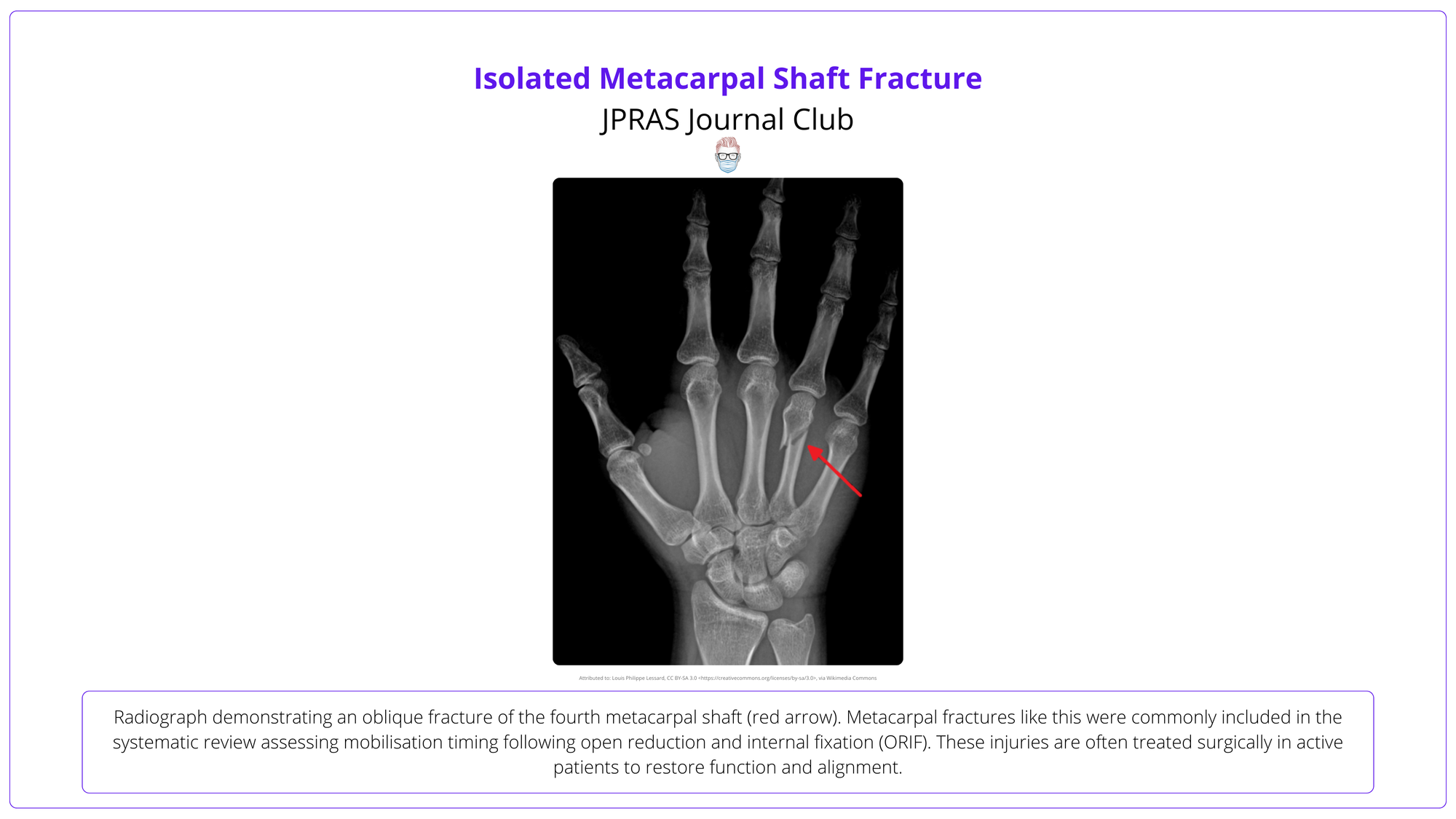
In this Journal Club
A systematic review (53 studies, 1,822 hand fractures) examined the timing of mobilisation post-ORIF. Immediate mobilisation showed faster healing but higher adverse events. Delayed mobilisation had fewer complications. Heterogeneity and lack of standardised PROMs limit conclusions.
5-Point Summary
A systematic review (53 studies) assessed when to start moving post-ORIF. Immediate mobilisation sped up healing; delayed reduced adverse events. PROMs varied. Heterogeneity limits conclusions.
4-Key Findings
Immediate mobilisation healed in 38.7 days. Early mobilisation had 25% adverse events; delayed had 9.3%. PROMs were inconsistent, limiting data synthesis.
3-Critiques
Most studies were retrospective and biased. PROMs and adverse events were inconsistently defined and reported across studies.
2-Practical Takeaways
Delayed mobilisation may lower complications. Earlier movement may boost early function. RCTs needed for clarity.
1-Recommended Reading
Feehan & Bassett (2004) found early motion (<21 days) improved recovery and return to work without loss of alignment.
Upcoming Events
You’re On Call Now: Live Event
You're invited to 'You’re On Call Now' — real-life on-call insights packed into one afternoon.
On the agenda:
- Red flags you can’t miss in trauma, burns & infections.
- Upskilling sessions on sutures, research, and microsurgery.
- Real stories from fellows, consultants, and top trainees.
- Sneak peeks from Foundations.
- Networking and live Q&A.
🎟️ Spots are free but limited, so register now to secure yours!
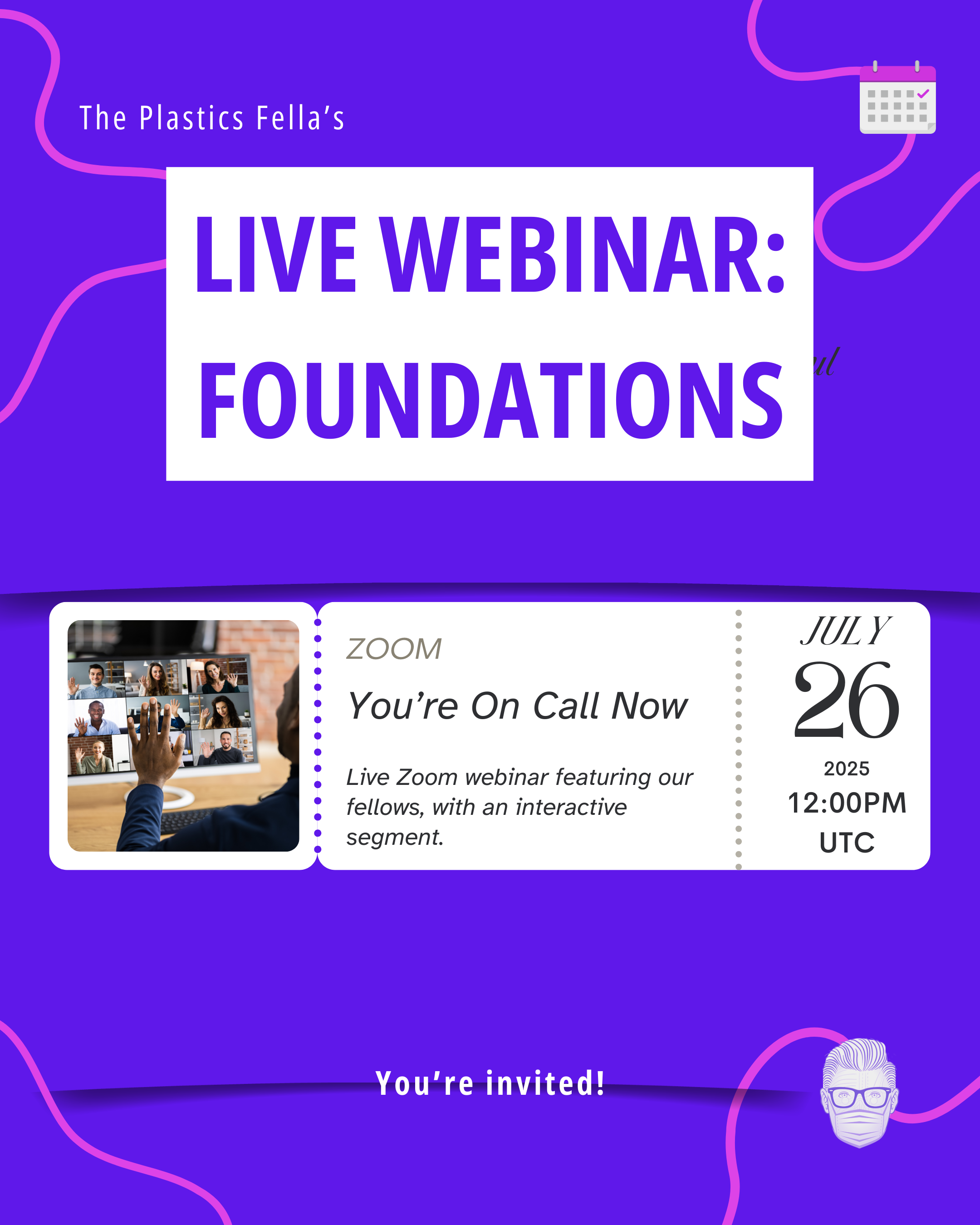
Foundations Textbook
Officially in Pre-Sale, and Open to the Public Soon!
👉 If you’re on the waitlist, check your inbox for your one-click access.
After months of development, feedback, and fine-tuning, Foundations is finally here for the pre-sale.
🔓 4 bundles to choose from
🔓 500 copies only
If you missed the chance to join the waitlist, no stress — the full launch opens to the public very soon. Stay tuned!
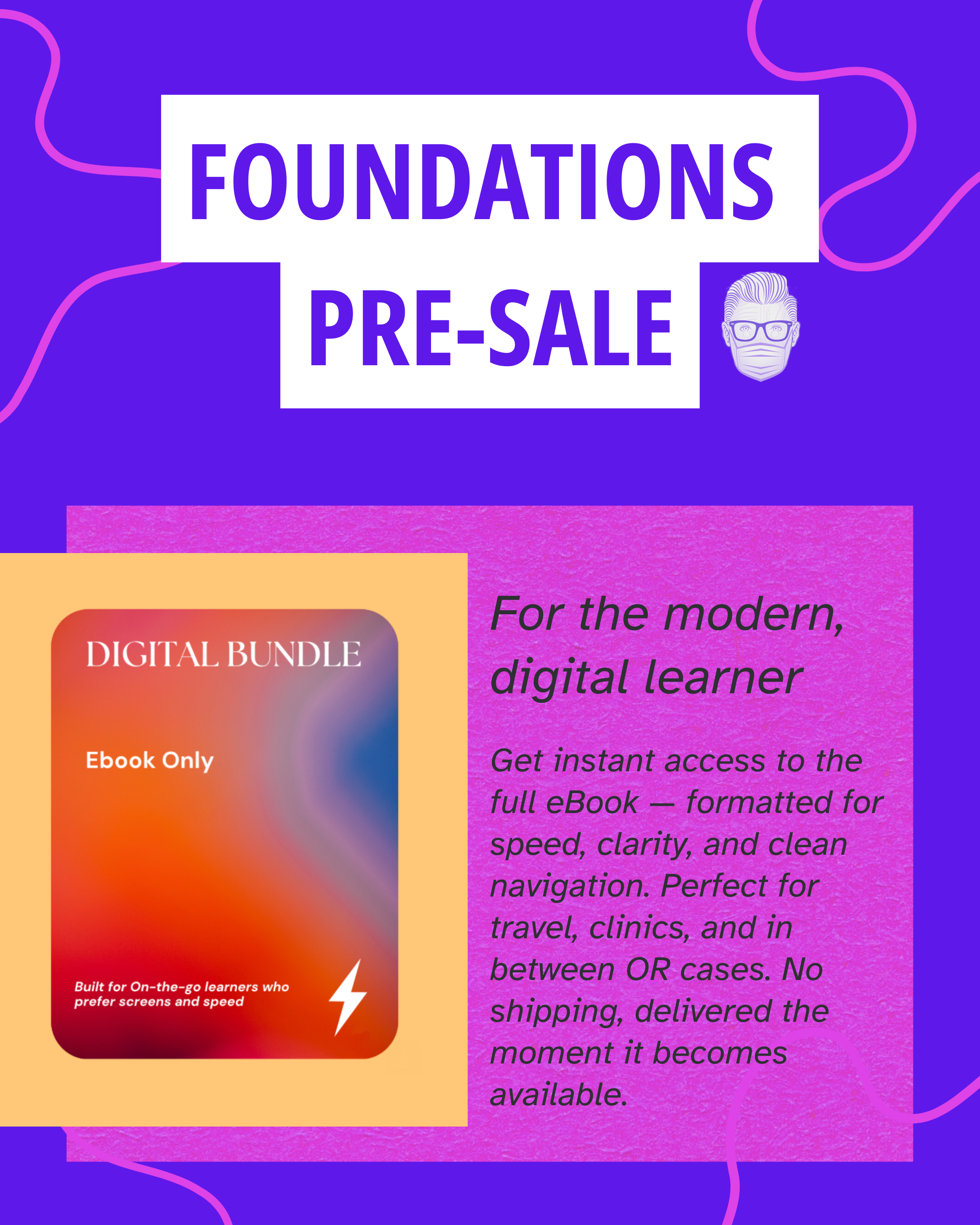
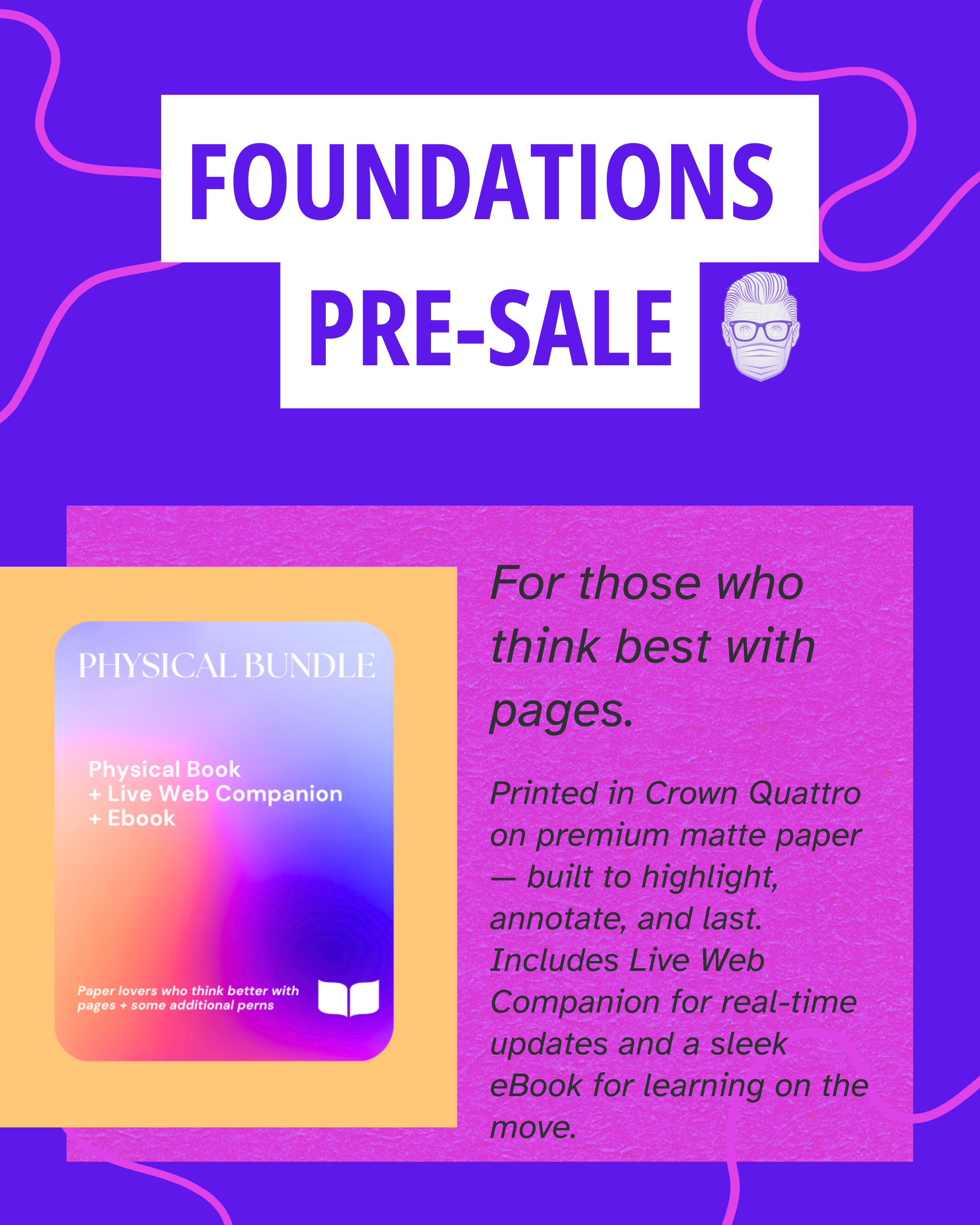
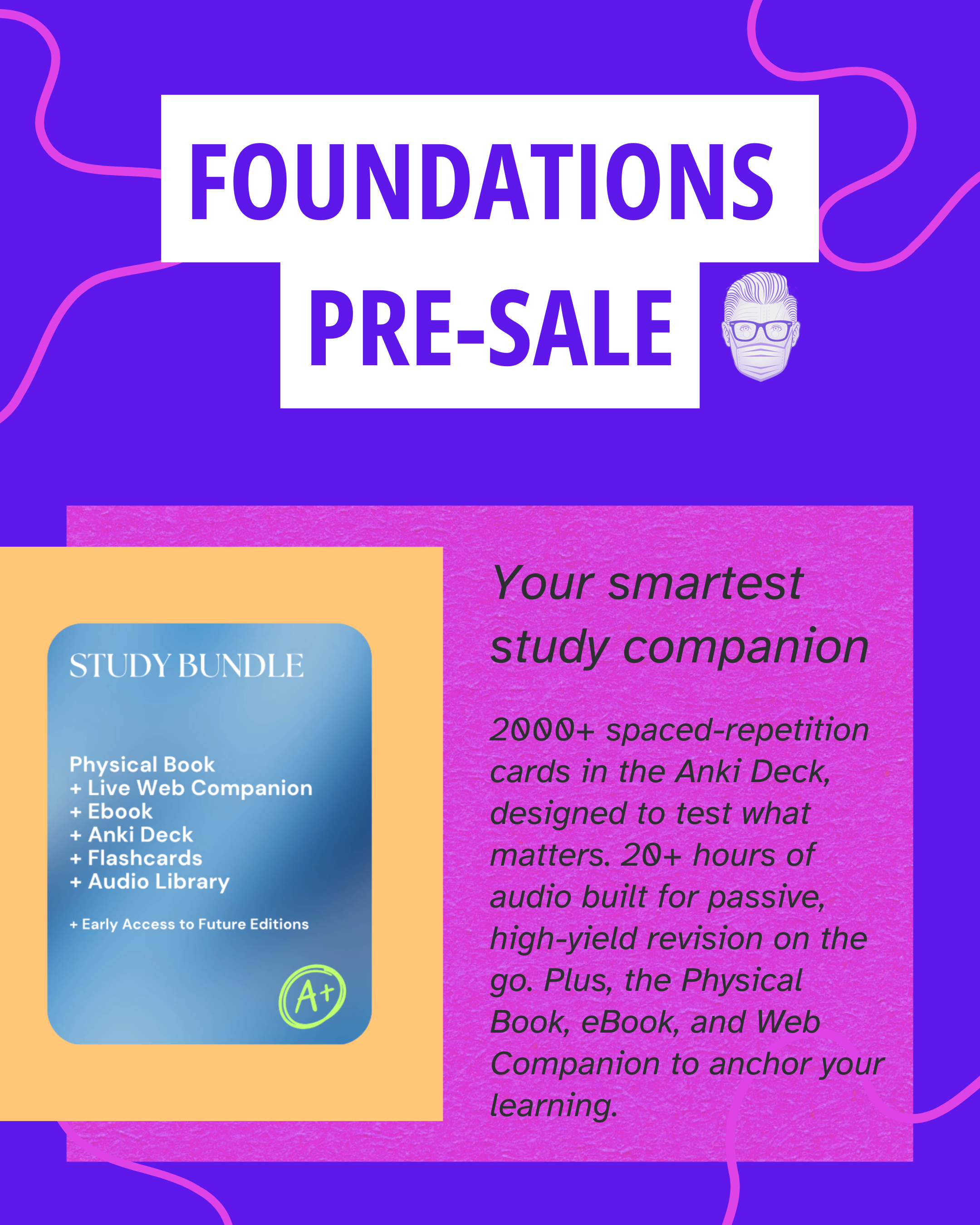
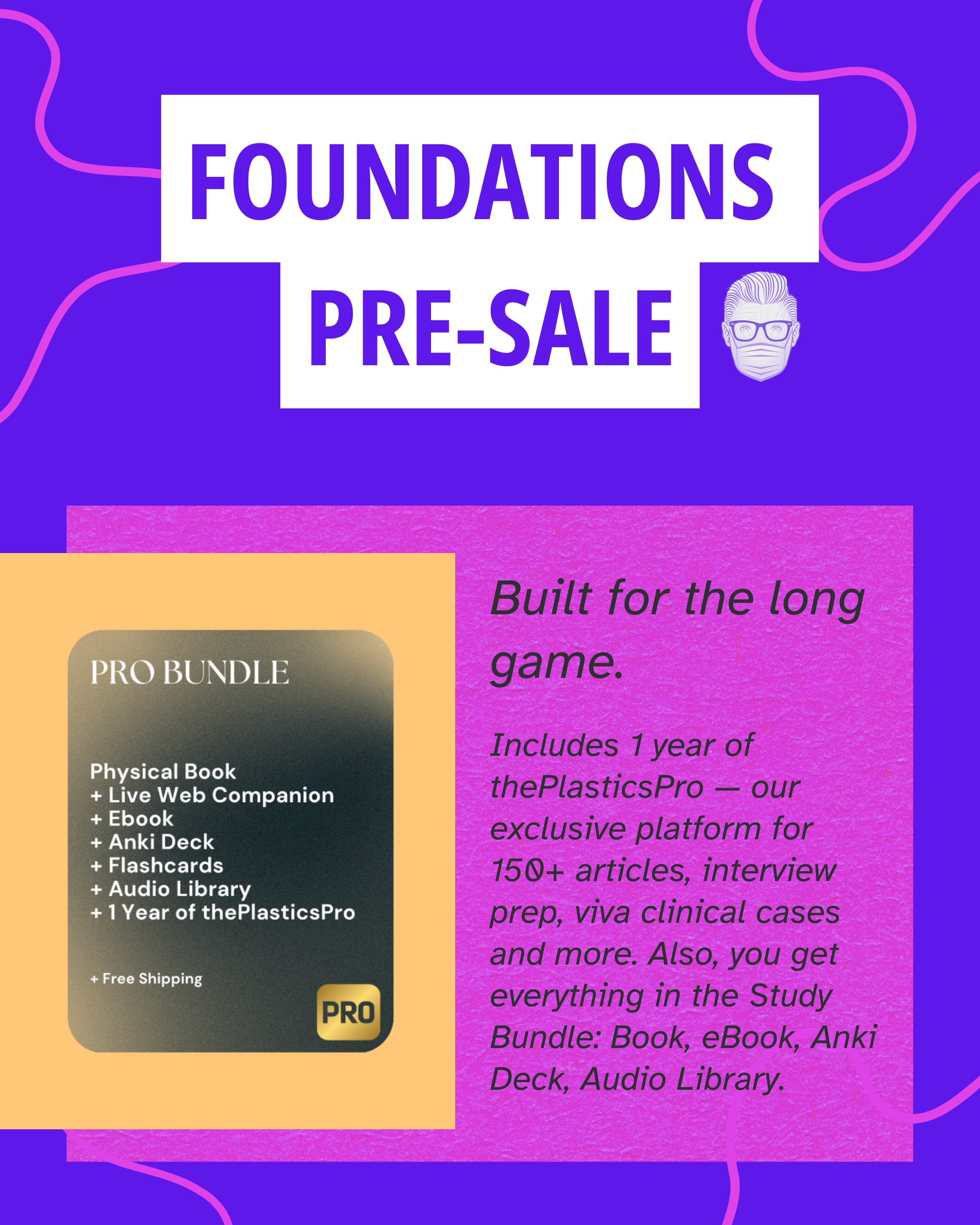
Foundations - Educational Bundles
Articles of the Week
3 Interesting Articles with One-Sentence Summaries
In this survey of 306 students, lack of plastic surgery exposure was widespread, but having a home training program didn’t significantly improve students' ability to identify appropriate referrals.
In a CME test of plastic surgery knowledge, ChatGPT-4o and Gemini outperformed residents before and after article review, though only Gemini improved with continued education.
After attending the "Explore Plastic Surgery" program, students without home residencies showed increased confidence and decreased concern about their chances of entering the specialty.


